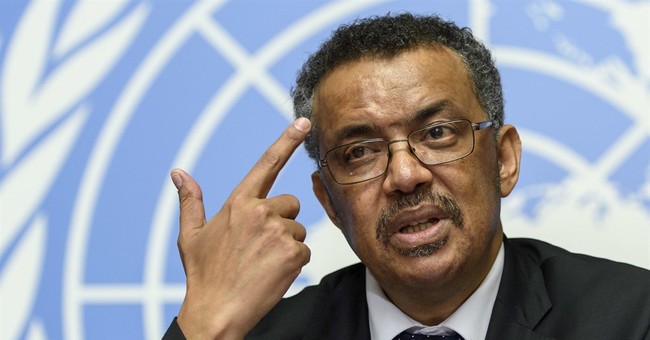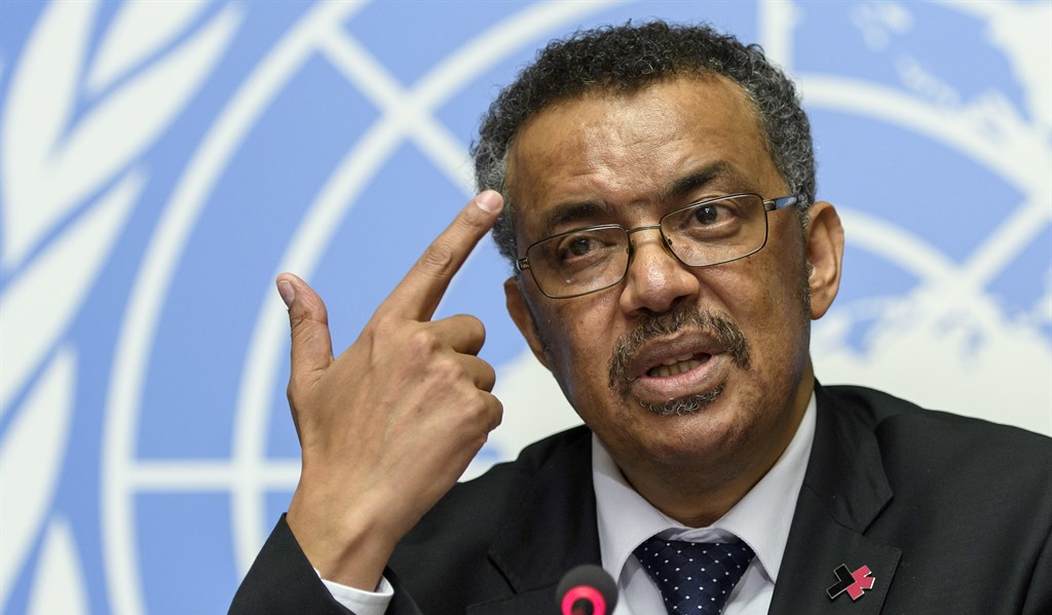
Tedros Adhanom Ghebreyesus, newly elected director general of the World Health Organization (WHO), answers questions of the journalists at the European headquarters of the United Nations in Geneva, Switzerland, Wednesday, May 24, 2017. (Martial Trezzini/Keystone via AP)
One of the promises on the horizon that folks have been talking about is that we may be able to have broader restrictions lifted with the employment of antibody tests indicating who has been exposed to the virus and is likely immune.
From KIRO 7:
Abbott Labs plan to ship four million tests in April and 20 million of the tests across the United States by June.
The latest antibody test is the third test Abbott has produced. It’s also launched a COVID-19 molecular test and the ID Now Rapid test, though UW scientists indicated this latest test is the most accurate so far.
Researchers said having the antibodies give you protection from the virus — but it doesn’t mean you’re immune for the rest of your life. You could get sick again. Still, they’re calling the test a milestone towards getting life back to normal.
Doctors have also been looking into that as a means of treating people for the virus as well.
So naturally, the World Health Organization (WHO) who already has a lot to answer for in how the virus spread all over the world, throws a wrench into that with this report.
According to Sky News, at a news conference in Geneva, Dr Maria van Kerkhove, the head of WHO’s emerging diseases and zoonosis unit, said:
“There are a lot of countries that are suggesting using rapid diagnostic serological tests to be able to capture what they think will be a measure of immunity.
“Right now, we have no evidence that the use of a serological test can show that an individual has immunity or is protected from reinfection.”
She added: “These antibody tests will be able to measure that level of seroprevalence – that level of antibodies – but that does not mean that somebody with antibodies means that they are immune.”
Her colleague Dr. Michael Ryan also weighed in and claimed the tests raised “ethical” questions.
“There are serious ethical issues around the use of such an approach and we need to address it very carefully, we also need to look at the length of protection that antibodies might give.
“You might have someone who believes they are seropositive (have been infected) and protected in a situation where they may be exposed and in fact they are susceptible to the disease.”
Is it fair to say that at this point, nothing that WHO says has any credibility? And that they are the last folks who should be talking about “ethical questions” given their behavior in this matter.
Yes, there are questions that need to be worked out but if the caution is meant to keep people locked in their homes around the world until you can guarantee 100% no re-infection, that’s not possible and that’s not happening.













Join the conversation as a VIP Member